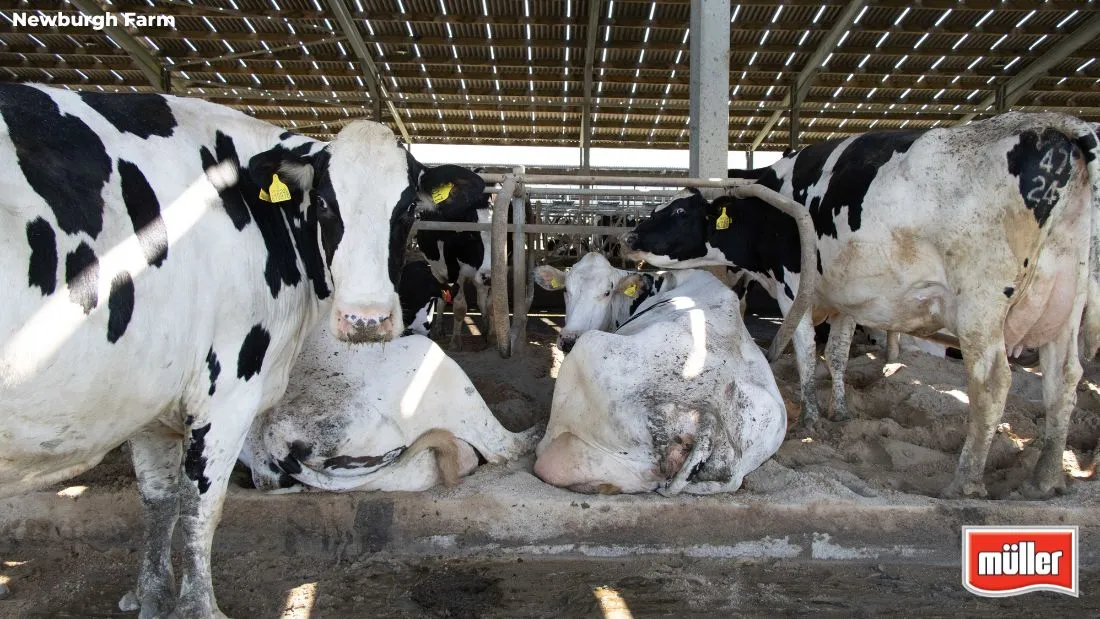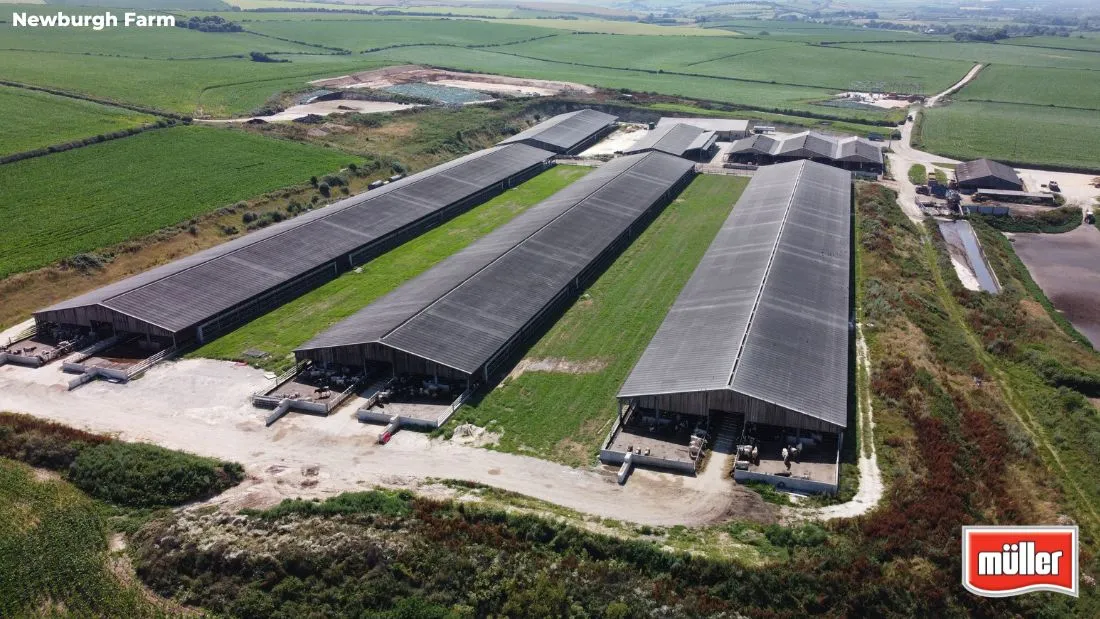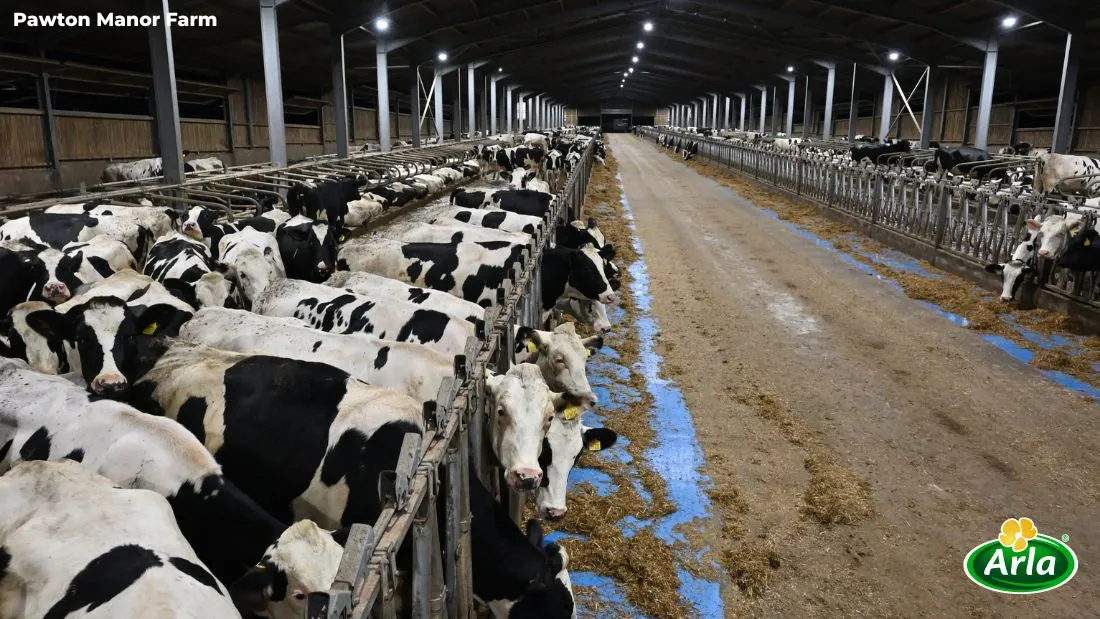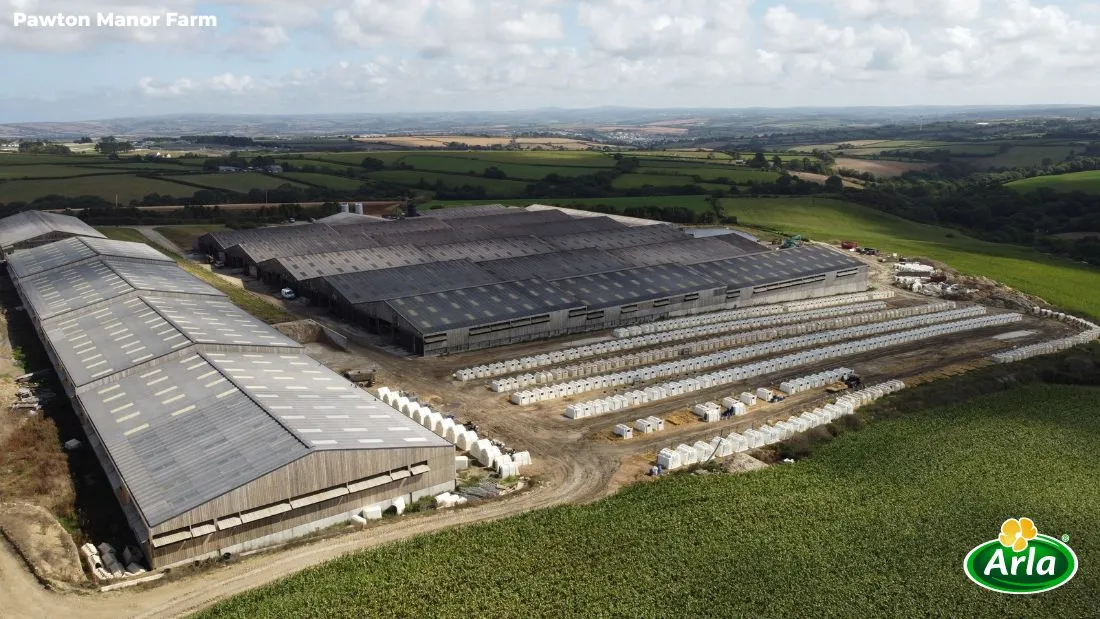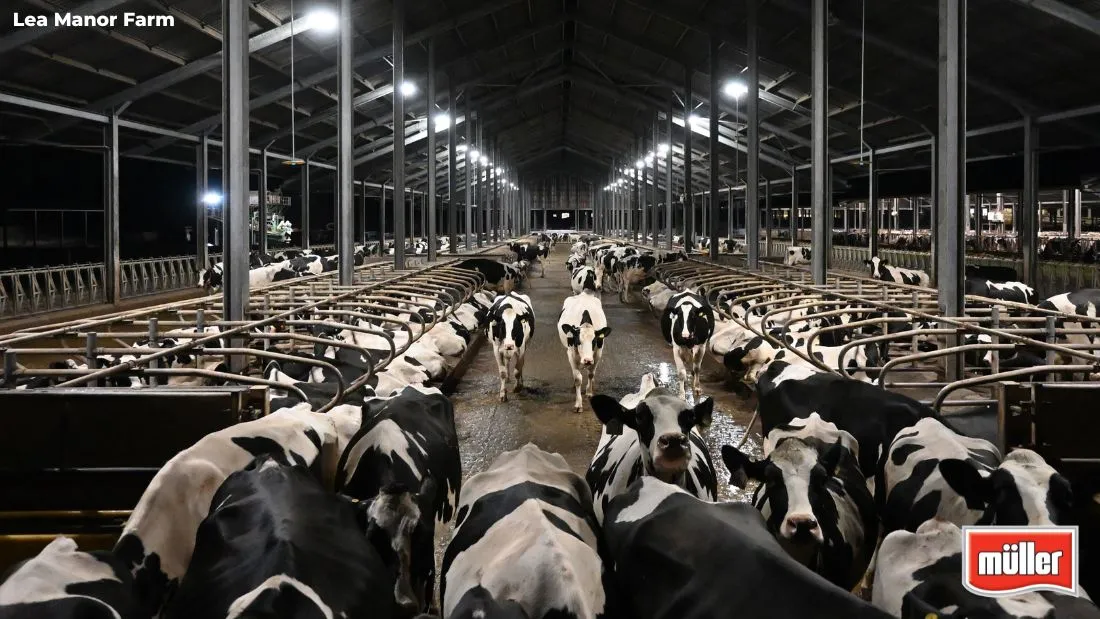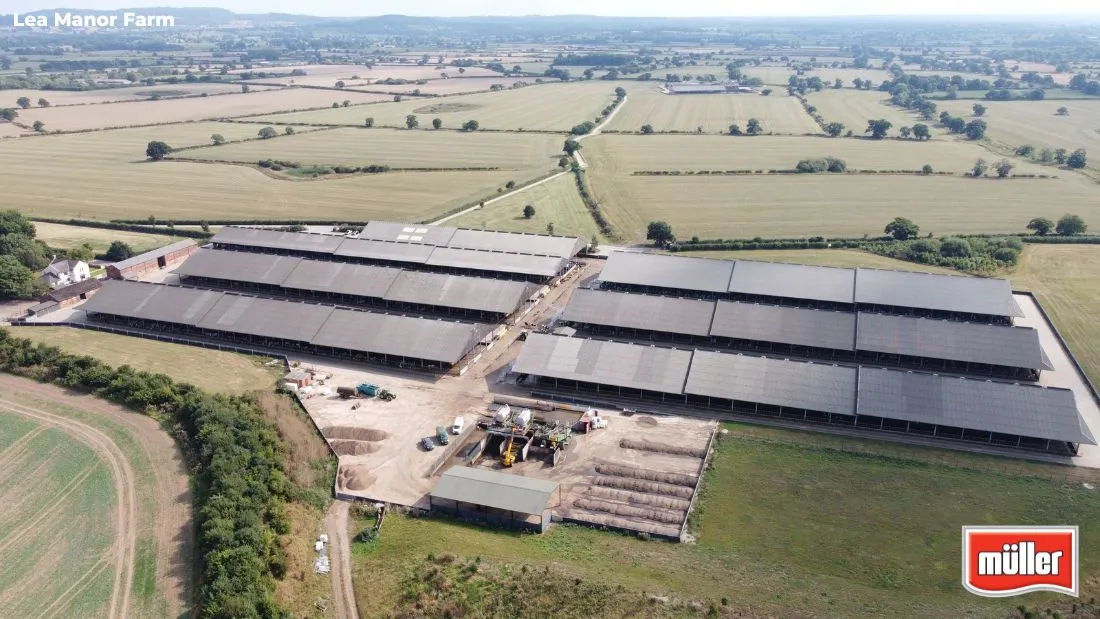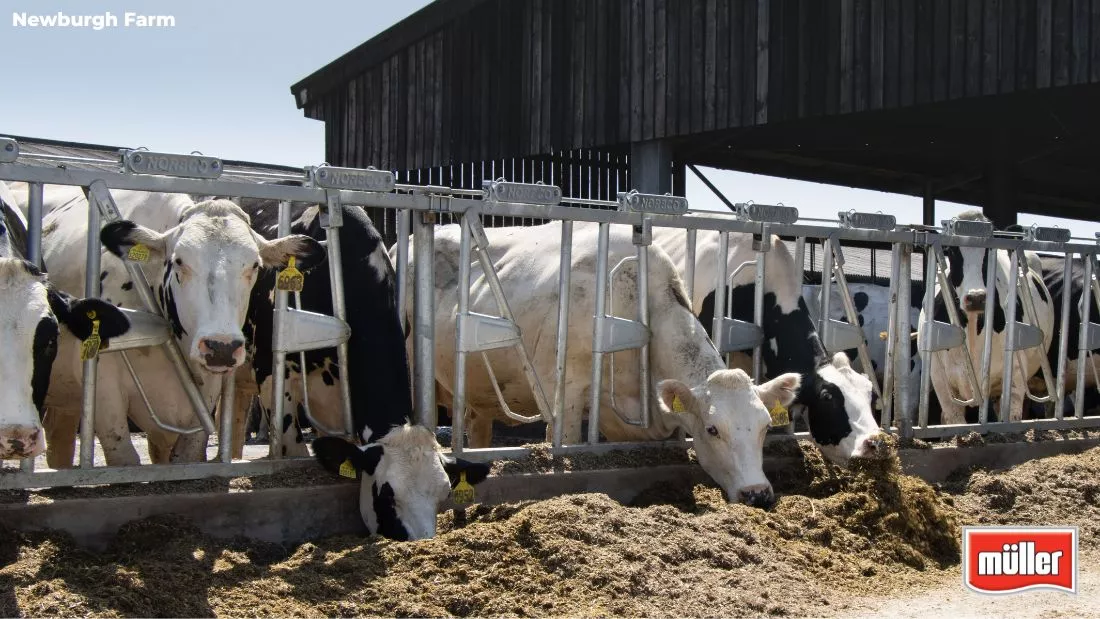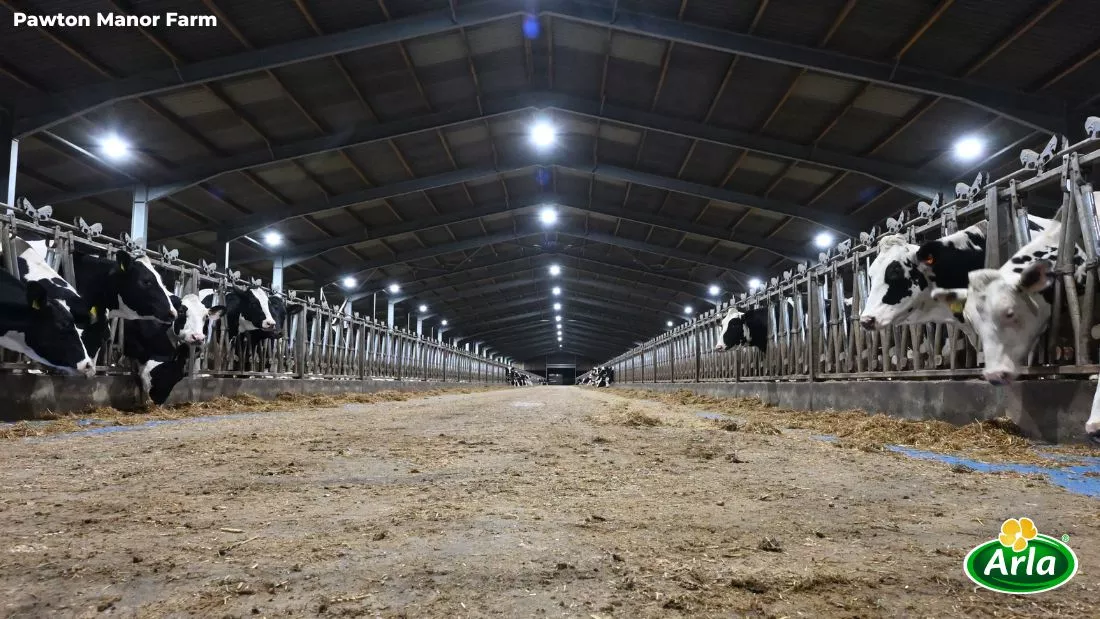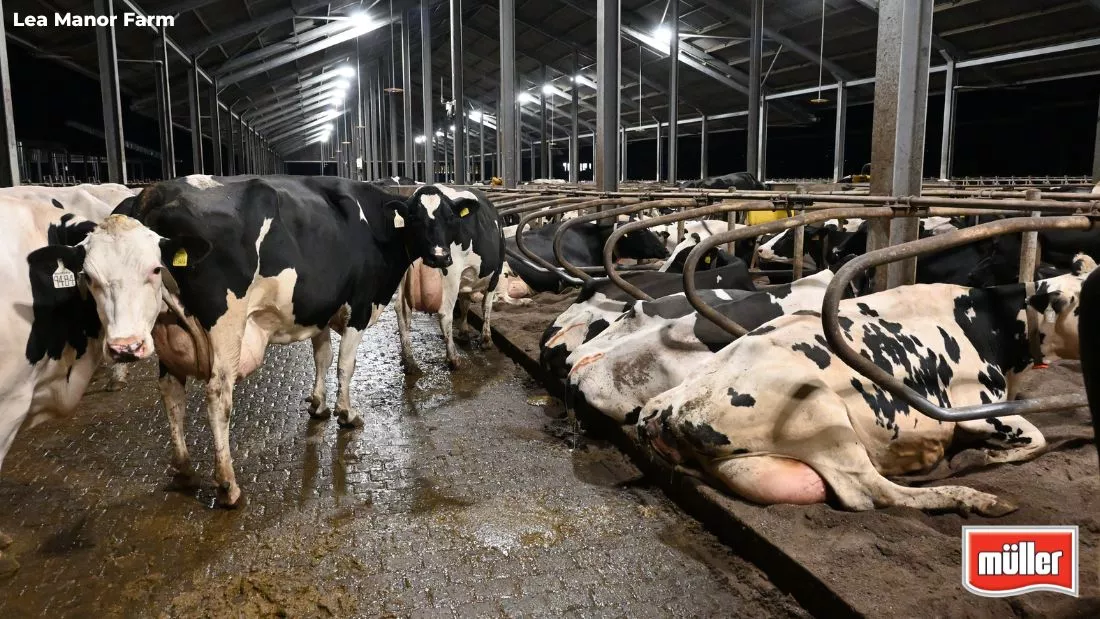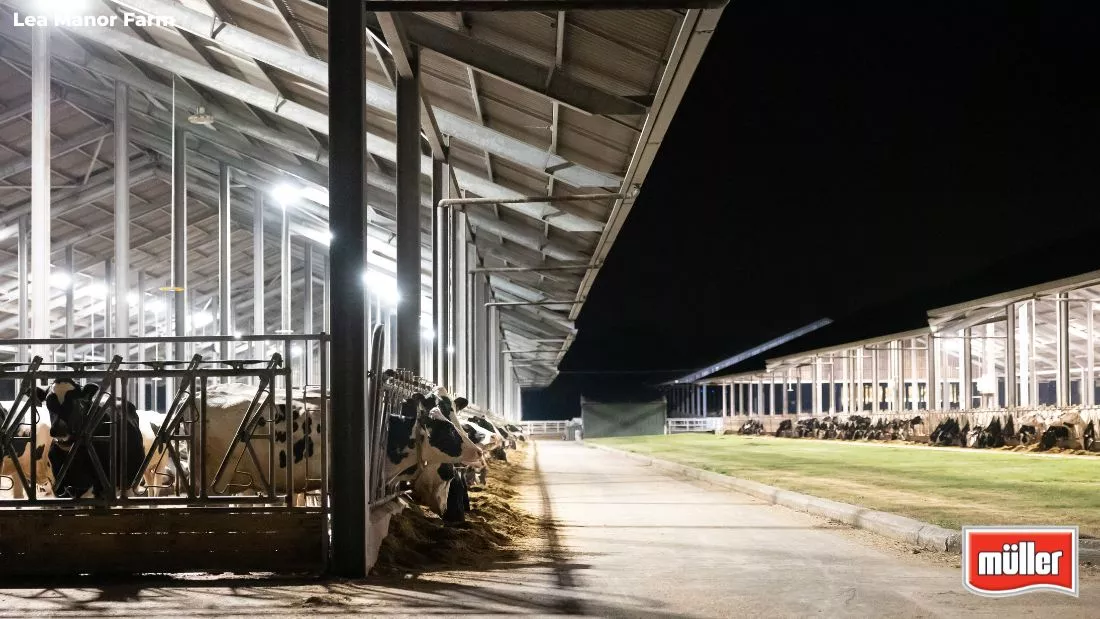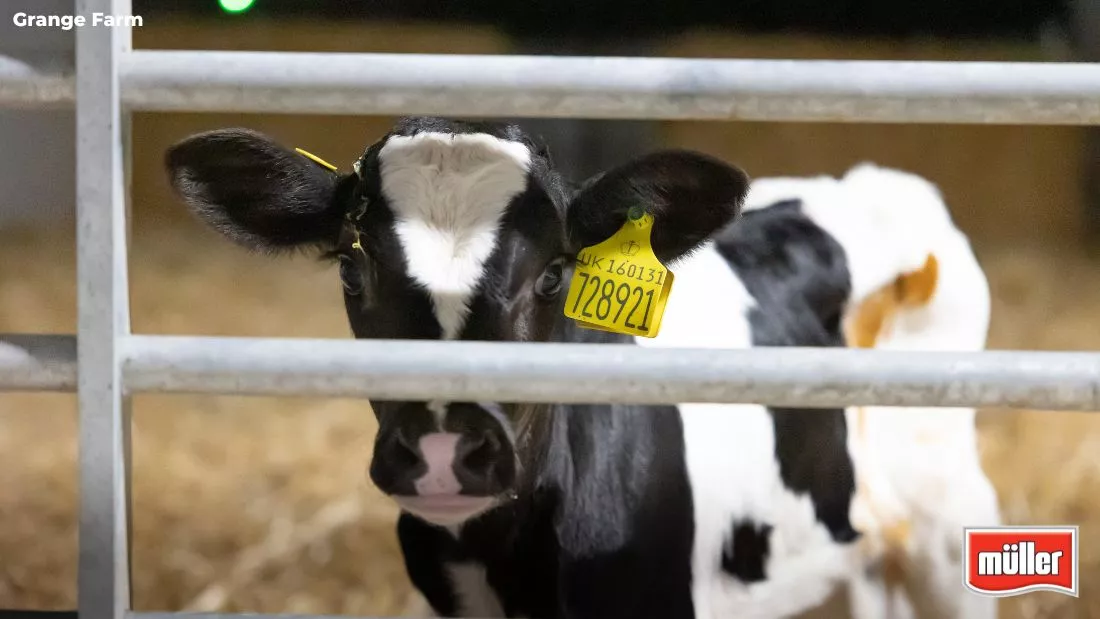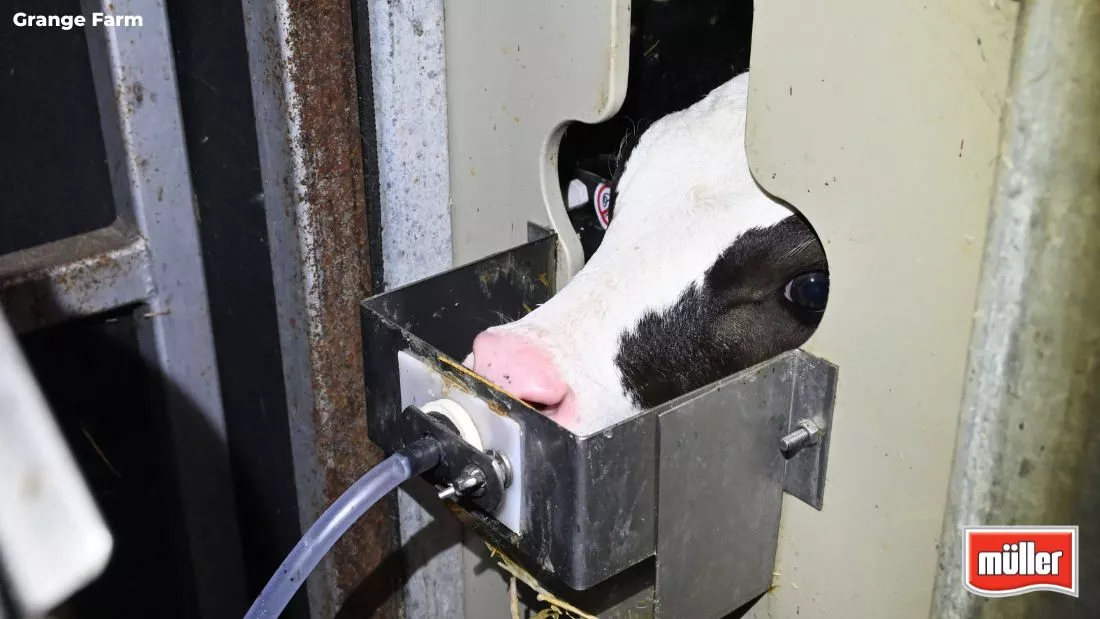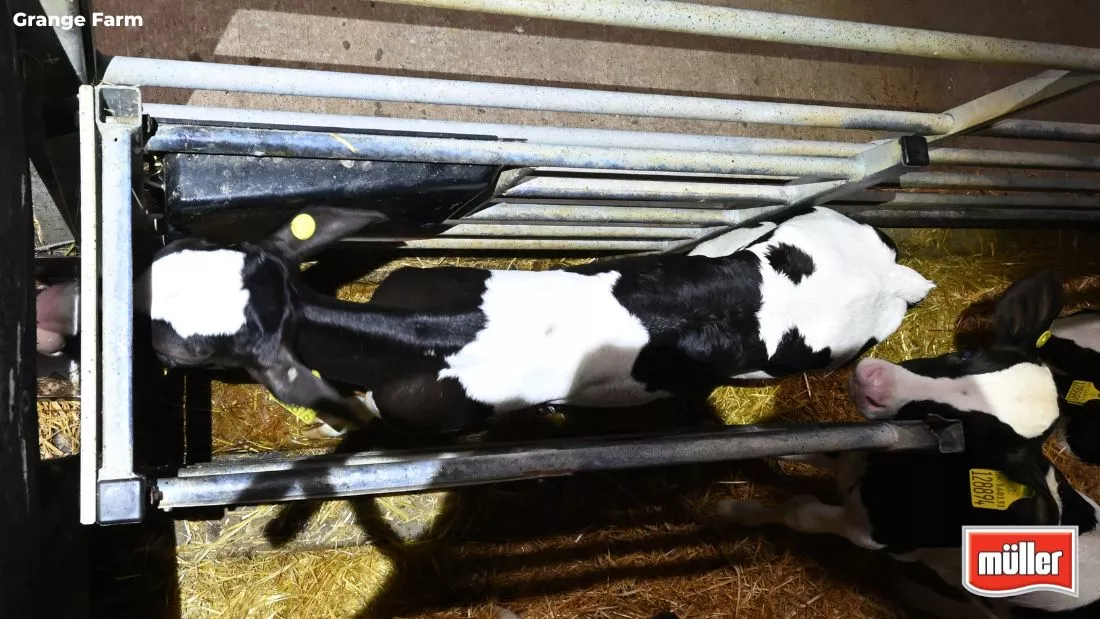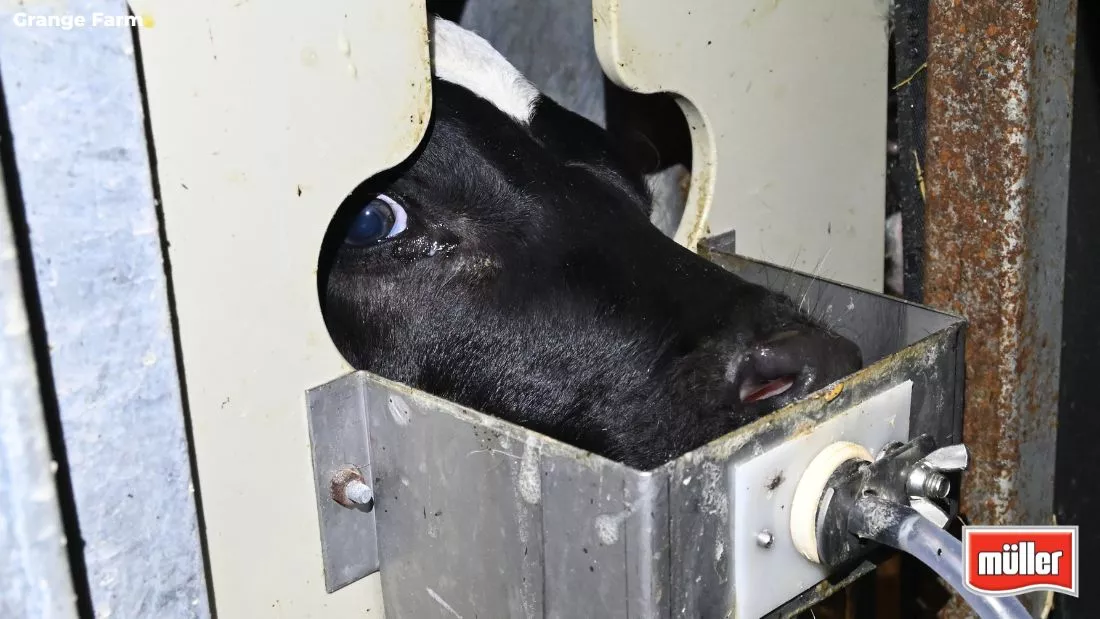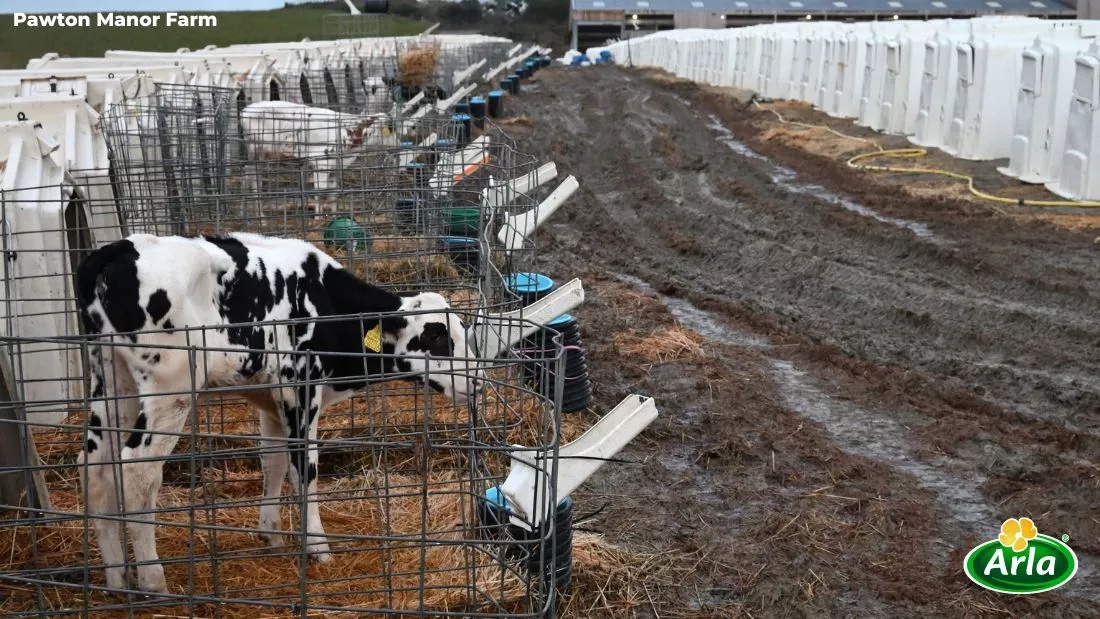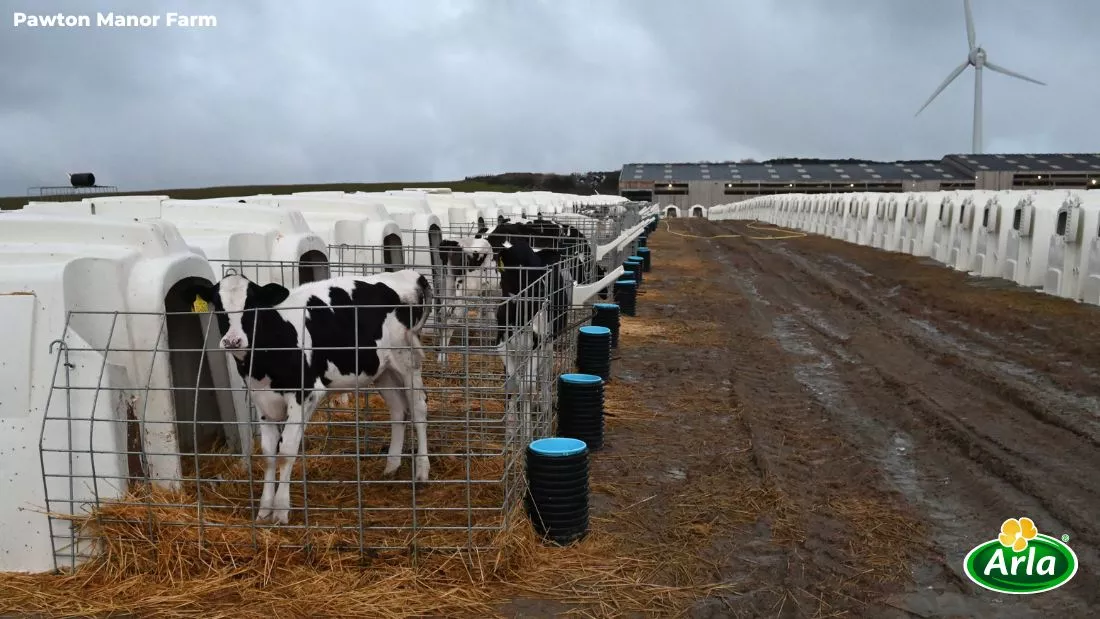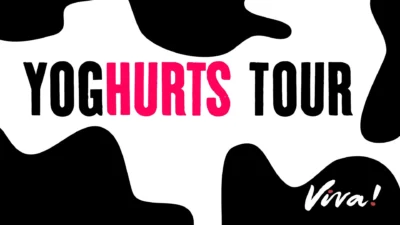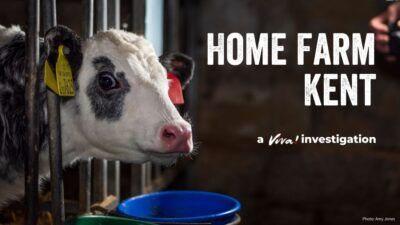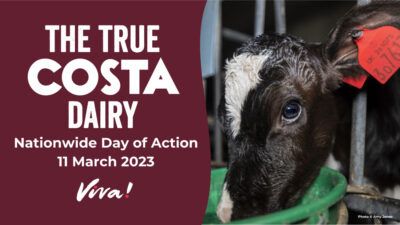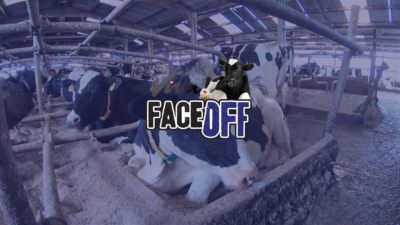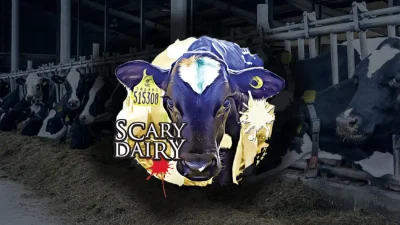Investigation: Zero Grazing
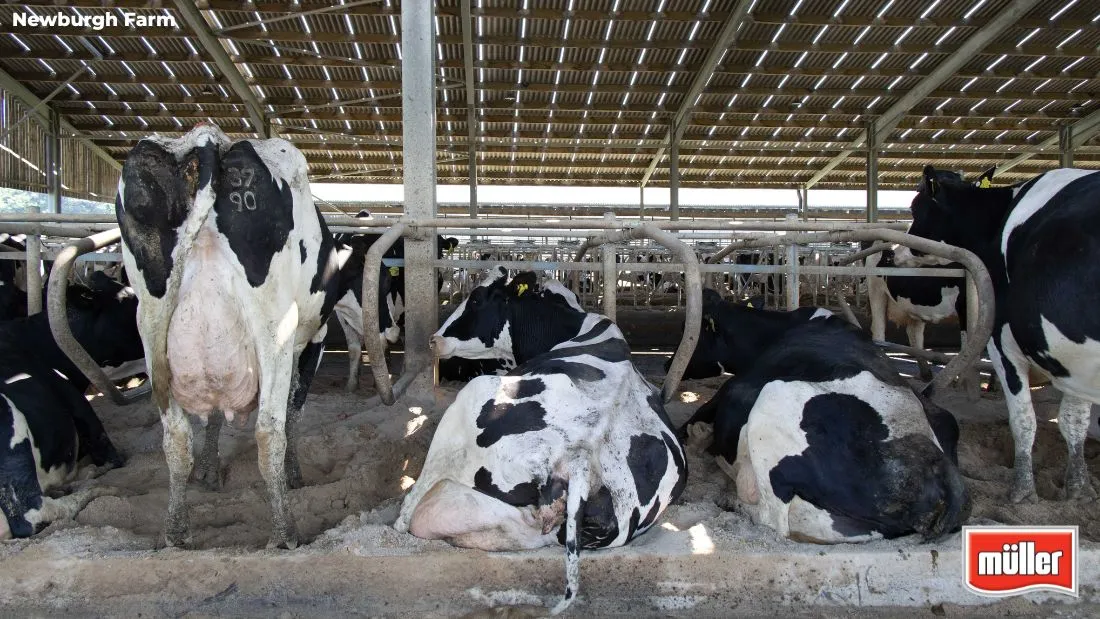
Between July 2021 and September 2022, investigators for Viva! Campaigns documented conditions at three of the largest zero grazing dairy farms in the UK, as well as one calf-rearing facility, supplying major players in the dairy industry – Müller and Arla.
Newburgh Farm (Müller) in Dorset, Pawton Manor Farm (Arla) in Cornwall and Lea Manor Farm (Müller) in Cheshire all operate a zero grazing system in which cows are locked indoors year round; denying them the freedom to graze outdoors throughout their entire miserably short lives.
Both Lea Manor Farm and a calf-rearing facility called Grange Farm are owned by the aristocrat and billionaire Hugh Grosvenor (the 7th Duke of Westminster) and managed under the Grosvenor Farms brand. They supply milk to Tesco via a Müller contract. In 2022, Lea Manor Farm attracted media attention when a farm worker was found guilty of hitting a cow with a spade more than 60 times, causing 18 lacerations together with bruising and swelling.
Each farm visited by investigators for Viva! Campaigns was monstrous in size, housing thousands of animals in barren cubicle-style sheds, hidden from public view down long private tracks or veiled by rows of strategically planted trees. Dairy farming has always been barbaric but it is clear that zero grazing is making it worse.
The growing spread of these US-style mega-farms across the UK represents an extremely bleak future for all dairy cows, unless the world can be weaned off dairy and on to vegan alternatives.
More images from the investigation can also be publicly viewed on Flickr.
Read the Observer exclusive

The UK is the 13th largest milk producer in the world, churning out over 15 billion litres of the white stuff every year. Although the number of dairy cows has fallen by around 28 per cent since 1996, to just short of two million cows, they collectively produce double the quantity of milk that they did 45 years ago. It is a staggering amount at a time when domestic consumption of liquid milk, milk powder and condensed milk has declined. What the nation wants instead, it seems, is butter, cheese and cream.
To meet this demand, zero grazing dairy units are on the rise but official figures on the number of dairy farms in Britain operating zero grazing systems remain vague. According to the Agriculture and Horticulture Development Board’s (AHDB) estimate on available industry data from before 2018 to 2019, only six per cent of UK dairy herds are ‘continuously housed’. However, the AHDB’s corporate affairs director told Viva! that “the size and shape of herds in the industry has changed considerably since then.”
Industry commentators suggest a more realistic figure of around 20 per cent – yet this is also thought to be an underestimate.
Intensive zero grazing dairy farms can house thousands of animals and work around the clock milking them. On what is thought to be the largest farm in the country of this type at present, there are an estimated 2,500 cows and rising.
Inside the industrial-sized sheds, metal-barred stalls run the length of each unit, separated by walkways of hard concrete soaked with faeces and urine. A feed barrier, which the cows push their heads through to eat, serves a dual purpose as locking mechanisms ensure members of the herd can also be restrained for veterinary treatment and artificial insemination.
Two or three times a day the cows are led to the milking parlour – usually a carousel that they walk themselves on to before workers attach suction cups to their teats to extract milk. Due to selective breeding, the average annual milk yield per cow has risen from 4,100 litres in 1975 to 8,200 litres in 2021. That is an average daily output of 27 litres (48 pints); the equivalent weight of carrying over five ten-pound bags of potatoes.
Between each trip to the milking parlour, vast quantities of milk therefore accumulate in the cow’s udder. It swells and protrudes between her hind legs, which is painfully uncomfortable and far from natural. It’s made worse by the almost universal practice of impregnating cows a couple of months after they have started milking. For seven months of every year, she’ll be lactating as well as nurturing a growing foetus. And, of course, when she does give birth, her calf is taken from her, just as in conventional dairy farming.
Naturally, a cow would suckle her calf for between nine and 12 months, but calves born on dairy farms are wrenched from their mothers shortly after birth. A strong mother-baby bond forms within the first few hours of birth, making their separation traumatic no matter what system they are confined to – organic, partially grazed or ‘continuously housed’ (zero grazing).
At Grosvenor Farms, a Müller supplier, investigators found that calves are taken from their mothers immediately after birth – a practice the industry calls ‘snatch calving’. It is supposed to protect the calves from Johne’s Disease; a contagious, chronic, and usually fatal infection that affects primarily the small intestine of ruminants. The calves are moved from the maternity unit (Edgerley Farm) to Grange Farm, where they are instead supplied pasteurised colostrum* and subsequently milk replacer formula via an automated system that reads an RFID chip in the calf’s ear.
Despite instructions on the milk replacement feed bags stating that water should be available at all times, some newly born calves had no water provided overnight – either no bucket or a dry empty bucket in their stalls.
Young calves were also documented at Pawton Manor Farm, a unit that supplies dairy to another leading brand – Arla. Over 500 calf hutches were filmed and some of the calves housed here were found to be 12 weeks old, in violation of government guidance that stipulates: “No calf shall be confined in an individual stall or pen after the age of eight weeks unless a veterinary surgeon certifies that its health or behaviour requires it to be isolated in order to receive treatment.”
*Colostrum is the first milk released by the mammary glands after giving birth. It’s nutrient-dense and high in antibodies and antioxidants that build a newborn baby’s immune system.
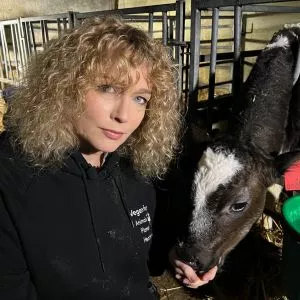
“This investigation has exposed one of the dairy industry’s most shocking secrets. Zero grazing defies a cow’s most basic instinct: to graze outdoors. To discover that leading dairy brands Müller and Arla are sourcing dairy from these farms proves that there is no such thing as ethical dairy – or any other animal products.
The picture of the idyllic British dairy industry that we are sold is a lie, and the reality is shameful. There is nothing natural about the dairy industry, and zero grazing is just the latest iteration of suffering that dairy cows are being subjected to. With so many alternatives to dairy products, every cow who suffers does so needlessly. We must be compassionate and stop their suffering by ending factory farming and going vegan now.”
– Juliet Gellately (Viva!, Founder and Director)
On Friday 19 May 2023, we launched Viva!’s biggest anti-dairy campaign to date in London – with the help of celebrity stuntman, Matt Pritchard. This event and Viva!’s follow-up YogHURTS tour was a resounding success thanks to all the volunteers that came out to support us.
If you’re keen to get involved in future events, consider joining our volunteer community.
Join Viva!'s volunteer community

The Observer (exclusive): Bucolic scenes on UK milk adverts hide reality of life for ‘battery cows’


[wonderplugin_cond deviceinclude=”Mobile”]
[/wonderplugin_cond]
[wonderplugin_cond deviceexclude=”Mobile”]
[give_form id=”72738″]
[/wonderplugin_cond]
By becoming a monthly donor, you will automatically become a Viva! Supporter and receive a subscription to Viva! Life magazine and a supporter welcome pack.We have lots of other welcome goodies available to our supporters, such as our fantastic range of discounts in our Supporter Discount Scheme.




